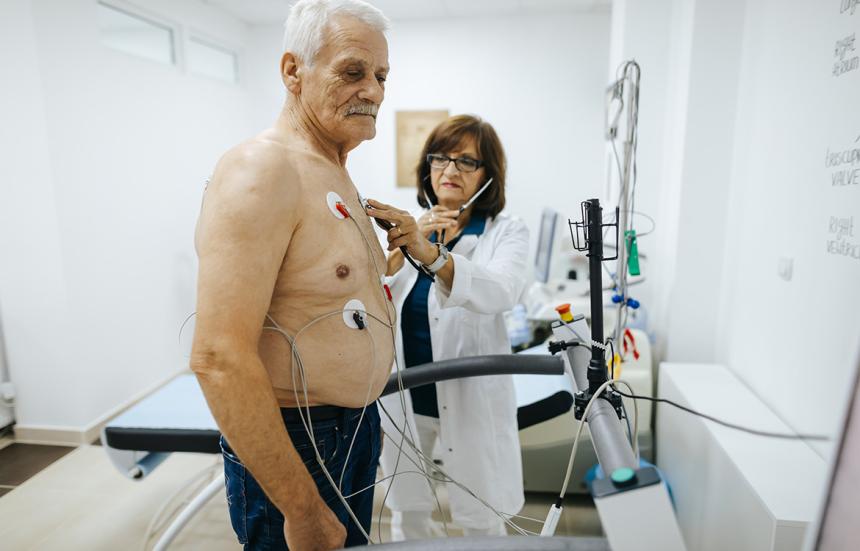What Causes You to Die Early?

For most of us, the term “early death” isn’t scientific. It simply describes death that occurs unexpectedly early: in children, of course, but also their parents and anyone else in the so-called prime of their lives.
Public health experts offer a clearer definition, and the age cutoff may surprise you.
What is Premature Death?
Early death, also called premature death, occurs earlier than the average age of death in a population. In the United States, that age is around 75 years old.
A lot of illness can happen in the first 74 years of life, yet the majority of early deaths have just a handful of causes.
Top 3 Reasons People Die Early
The top three, according to the Centers for Disease Control and Prevention, are
- Heart disease
- Cancer
- Accidental injury.
(Other major health issues, like smoking and type 2 diabetes, also cause early death, but by way of heart disease and cancer. Over the last two years, COVID has also become a leading cause of death.)
Change What You Can
Some risk factors for early death are out of your control, like your gender at birth, aberrant genes and drunk drivers. Even so, you have more control over your health destiny than you may realize. Research suggests that as many as 50 percent of all deaths are preventable.
The key is to know about and improve your modifiable risk factors for early death. In other words, find out what health behaviors you should change, then come up with a plan to make it happen. This is one area where having a strong healthcare partner focused on prevention can help.
Risks Associated with Premature Death
Below is a list of key risk factors associated with early death via their contribution to heart disease and cancer.
- Smoking. Associated with heart disease; cancers of the lung, mouth and throat, voice box, esophagus, stomach, kidney, pancreas, liver, bladder, cervix, colon and rectum, and blood (acute myeloid leukemia)
- High blood pressure. Associated with heart disease
- High cholesterol. Associated with heart disease
- Diabetes. When poorly controlled, associated with heart disease and kidney disease, plus a host of non-life-threatening complications
- Overweight and obesity. Associated with cancers of the uterus, cervix, endometrium, ovary, breast, colon, rectum, esophagus, liver, gallbladder, pancreas, kidney and prostate; stroke; heart disease and its risk factors, including diabetes and high cholesterol; severe covid-19 symptoms; all-cause mortality
- Poor diet (high in fat, high in added sugars, low in nutrients). Associated with heart disease and its risk factors, including obesity, high blood pressure, high cholesterol, stroke, and type 2 diabetes; cancers associated with being overweight and obesity
- Processed meats (bacon, ham, deli meat, jerky, hot dogs, salami, other cured meat products). Associated with colorectal cancer
- Physical inactivity. Associated with heart disease, colorectal cancer. (Conversely, physical activity may reduce risk of eight cancers: bladder, breast, colon, endometrium, esophagus, kidney, lung, stomach)
Remember that accidental injury plays a huge role in early death, too. Be sure to buckle up in cars; wear a helmet when you’re on two wheels; and don’t underestimate the power of drugs (prescribed or not) on your physical reaction times and judgment.
Think Outside the Box to Live Longer
One of the harsh realities of life is that disease, injury and death can be terribly random. We all know of at least one person whose death made no sense, like a veggie-loving fitness instructor unexpectedly diagnosed with terminal cancer or a 40-year-old vegan who has a massive heart attack in his sleep.
News like that can make you wonder if diet and exercise are impactful enough, if there are any lesser-known strategies you can try. These are good questions for your doctor, who can assess whether you’re a good candidate for interventions such as:
- Cardiovascular wellness program before an acute event occurs or a lifesaving procedure is needed
- Occupational therapy to help reduce your risk of a fatal fall
- Physical therapy to correct muscle imbalances before you start an exercise program
- Behavioral therapy to better cope with stress, reduce overeating and more
- A sleep study, which may reveal sleep apnea, a risk factor for heart attack and stroke
- Fewer, more or different medications
You’ll probably benefit from a multi-pronged approach if you want to make major lifestyle modifications. And these new behaviors will be hard to stick with; change usually is. So, lean on your physician for help. Admit to your challenges. Ask for support and motivation when you need it.
The long-term benefit – more years to spend with people you love – will be worth the short-term pain of establishing new, healthy routines.
Schedule a checkup with your primary care physician today!
